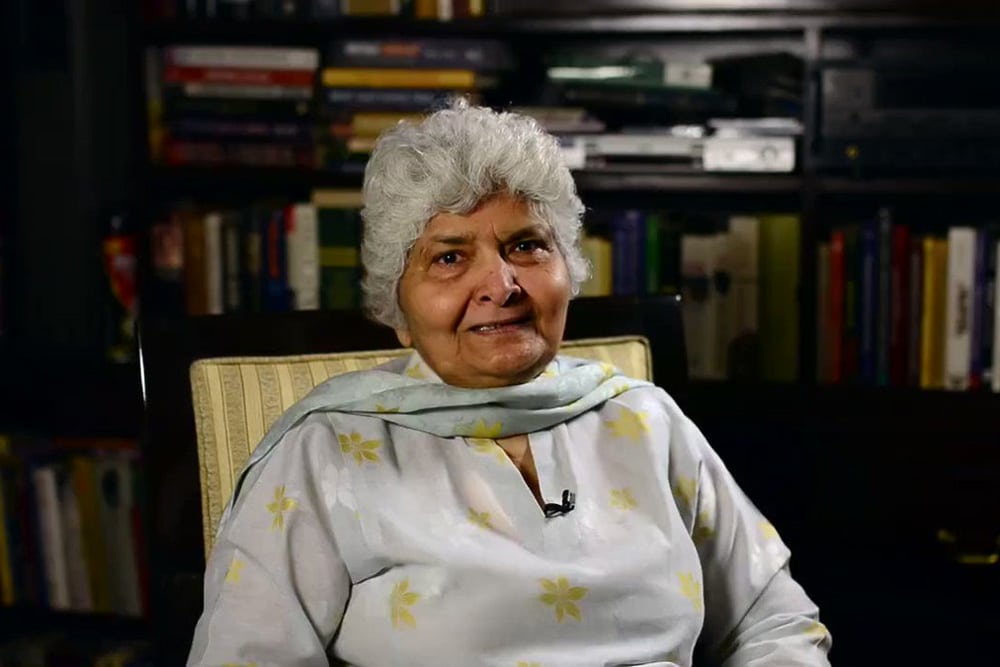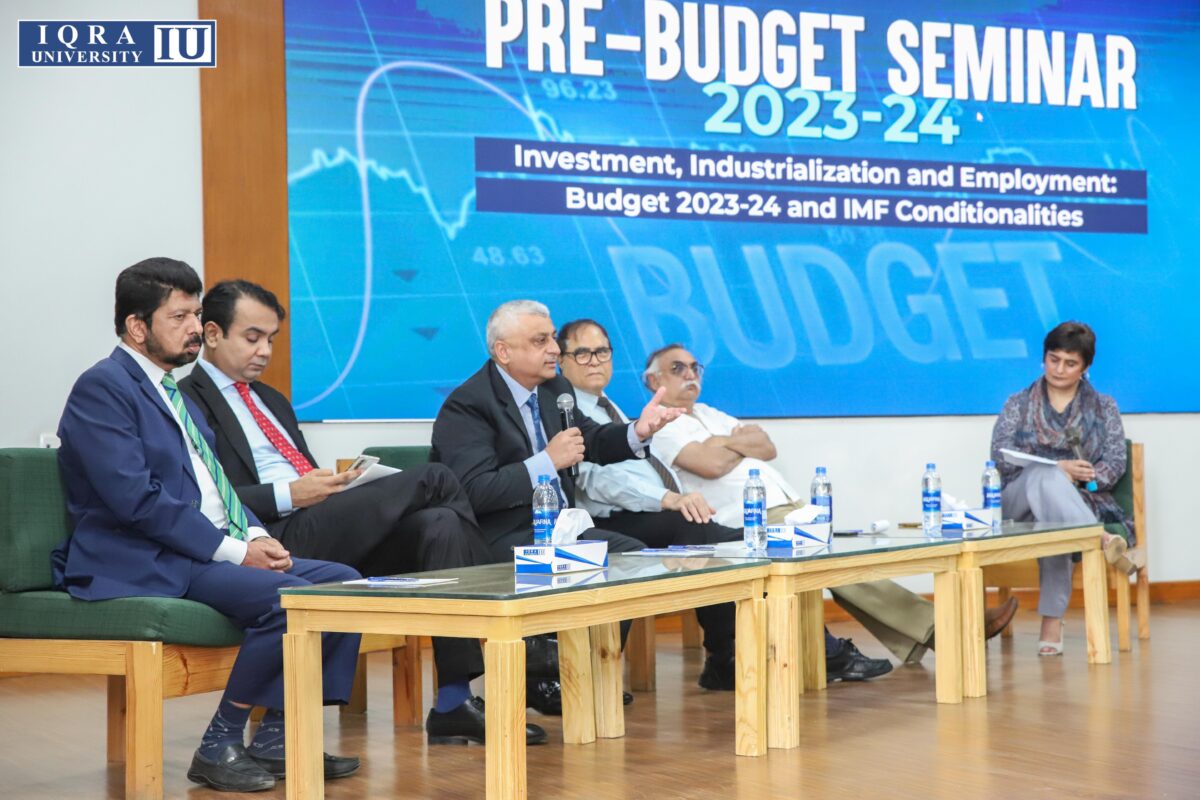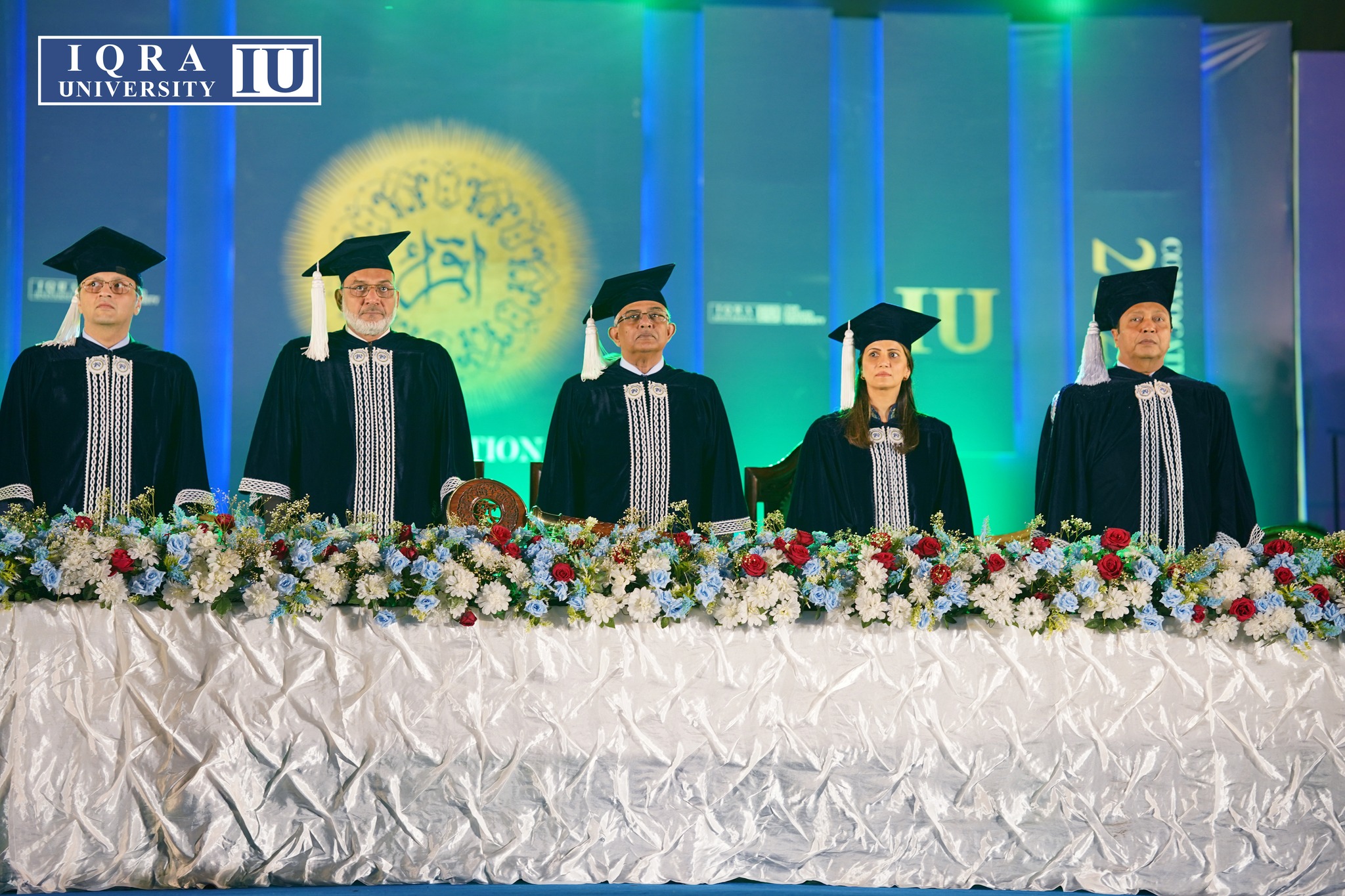Investment, Industrialisation, and Employment in the Budget 2023–24 and IMF Conditionality in Pakistan
Karachi: Iqra University organised a Pre-Budget Seminar on June 3 that centred around the critical theme of “Investment, Industrialisation, and Employment: Budget 2023–24 and IMF Conditionality in Pakistan.” This seminar provided a platform for eminent speakers to address crucial policy issues that must be tackled in the upcoming budget.
The speakers included the former chairman of FBR, Mr. Syed Shabbar Zaidi, CEO at HubSalt and President Lasbela Chamber of Commerce and Industry, Mr. Ismail Suttar, the CEO of Automotive MFG (Pvt) Ltd. and Vice President of the Federation of Pakistan Chamber of Commerce and Industry (FPCCI), Engineer M.A. Jabbar, and Executive Director, Sales & Marketing, Pak-Qatar General Takaful Ltd., Mr. Mehmood Arshad.
The speakers delved into topics such as taxation, revenue collection, debt management, import-export dynamics, industrialisation, employability, and other pertinent economic challenges. Attendees comprised students, faculty members, traders, and policy experts.
The seminar was hosted by the Chairperson of the Business Administration Department of Iqra University, Prof. Dr. Hameedah Sayani.
Mr. Zaidi commenced the seminar with a discussion on the high financial deficit of Pakistan. The esteemed tax expert emphasised the need for comprehensive tax reforms to enhance revenue collection. He discussed measures to broaden the tax base, simplify tax procedures, and combat tax evasion. Mr. Zaidi stressed the importance of creating a fair and transparent tax system to support economic growth and reduce the burden on the salaried class. According to the former chairman of the FBR, this year’s total revenue collection is Rs527.3 billion, and Pakistan’s total debt is Rs57 trillion. He stated that imports into Pakistan during January 2023 amounted to Rs. 1,141,525 million (provisional) as against Rs. 1,158,313 million in December 2022.
He further maintained that 50% of Pakistan’s economy is agriculture- and retail-based. “All the burden is on the manufacturing sector,” he said. “If you collect tax worth Rs. 7000 billion, 98% of the tax is paid voluntarily or is import-based; the remaining 2% is collected by the FBR.”
Speaking about the capital of the firms in Pakistan, Mr. Zaidi highlighted that the companies do not increase their capital, which is their biggest flaw.
All the speakers addressed the pressing issue of Pakistan’s total debt and its implications for economic stability. They discussed the importance of prudent debt management, reducing dependence on external borrowing, and ensuring fiscal discipline. They emphasised the need to focus on revenue generation and explore alternative sources of financing to alleviate the burden of debt.
Engineer M.A. Jabbar shed light on the challenges and opportunities associated with import-export dynamics and industrialisation. He highlighted the need for policies that promote export-oriented industries, encourage investment in the manufacturing sector, and enhance productivity. Jabbar emphasised the importance of developing a supportive environment for industries and fostering innovation to drive sustainable economic growth. “Pakistan must face sanctions like Iran,” he said, adding: “The only solution to our problems is to have a corruption-free government.” The vice president of the FPCCI told the audience that Pakistan has already defaulted.
According to Mr. Sattar, Pakistan managed COVID-19 very efficiently through NCOC. “The way we managed COVID-19, we must manage rapid industrialisation on war footage,” he said.
Speaking about employability, he said that today we are only surrounded by political chaos in the country. “Imran Khan vs. the rest of the parties. Every media person and anchor is only talking about the elections; nobody highlights the rapid increase in the unemployment rate in the country.”
He addressed the issue of employability in Pakistan and stressed the importance of skill development programmes. He highlighted the need for aligning education and training with industry requirements to bridge the skills gap. The HubSalt CEO emphasised the role of public-private partnerships in promoting vocational training institutes and creating a workforce that meets the demands of a rapidly evolving economy. “We need to increase our exports to Rs. 111 billion to come out of this crisis. We are rich because of our resources and human resources; however, the only problem in Pakistan is the management. The government has to take things seriously now,” said Mr. Sattar.
According to him, the long-term solution is industrialisation and he said that we need to broaden our horizons now. “The government’s job is to make policies, but the private sector’s job is to find and make the product.”
Speaking about the IMF conditionality and economic reforms, Mr. Arshad discussed the relationship between the IMF and Pakistan, focusing on the conditionality imposed by the IMF on economic reforms. He highlighted the importance of adhering to IMF guidelines while safeguarding the country’s interests. Arshad emphasised the need for structural reforms that enhance economic governance, promote investment, and improve fiscal discipline. “This gap in the economy can be filled by the private sector,” he said, adding: “A lot of investors from various countries want to invest in Pakistan and the government should come up with an investment-friendly strategy aiming at sector-specific work. We need diversification.”
All in all, the seminar engaged students, faculty members, traders, and policy experts, fostering discussions on important economic challenges and potential solutions. It served as a catalyst for informed decision-making and policy formulation, contributing to the development of a robust and inclusive budget that addresses the needs of Pakistan’s economy and promotes sustainable growth.
At the end, shields were awarded to all the guest speakers present at the seminar.

Dr. Arfa Brings Nearly 55 Years of Experience in Education to Iqra University
Iqra University welcomes Prof. Dr. Arfa Sayeda Zehra as Professor Emerita. Dr. Arfa is a distinguished educationist who has been


